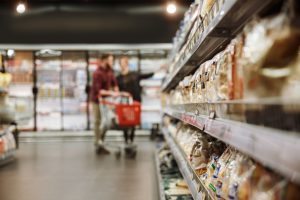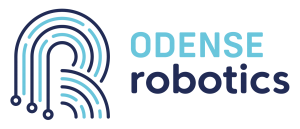Understanding the Implications of Robots Working in Everyday Public Interaction in Retail
The project aims to harness the untapped potential of robots in the retail sector. It will delve into the possibilities and obstacles involved in using mobile robots to aid retail personnel in logistical functions. Through field research, particularly at a prominent Danish retailer, the project will uncover both technical and cultural barriers, and pinpoint suitable solutions for integrating robots into shared retail environments.

Understanding the Implications of Robots Working in Everyday Public Interaction in Retail
The purpose of the project is to harness the untapped potential of robots in the retail sector. It will delve into the possibilities and obstacles involved in using mobile robots to aid retail personnel in logistical functions.
Through field research, particularly at one of the main retailers in Denmark, the project aims to uncover both technical and cultural barriers. The goal is to pinpoint suitable solutions for integrating robots into shared retail environments.
Background
Autonomous robotics solutions have predominantly stayed out of sight of everyday people and have primarily operated in markets with an industrial setting, which means that they mainly have trained personnel working alongside them. One of the challenges of introducing robotics into public spaces is that the robots have to work alongside many different groups of people who are not used to robots and have rather different objectives.
In a supermarket, these groups are:
1. Varying types of consumers in the store carrying out their shopping
2. Store staff, such as pickers, managers and other employees without technical skills
3. Promotional product staff that operate in the store restocking shelves and making sure that branded products are properly displayed in the right places.
BILKA in Odense has currently deployed several mobile robots for moving trolleys used for the Click & Collect processes in its salesrooms. This solution is currently extended into helping move trollies full of products for restocking purposes.
The current setup at BILKA in Odense offers a unique opportunity to study human reactions and attitudes towards robots in everyday public settings. Data gathered from lab settings or short-term real-world exposures have limited validity. This installation provides a chance to generate more reliable and meaningful data regarding the challenges and consequences of human-robot interactions in a real environment with extended exposure.
The "Understanding the Implications of Robots Working in Everyday Public Interaction in Retail" project's objective is to examine how humans interact with robots across different user groups through ethnographic fieldwork, including observations, surveys, and interviews.
Through advanced user experience analysis tools, we can gain insights into various dimensions of these interactions. This data will help us better understand how robots can be seamlessly and acceptably integrated into real-world environments involving various actors and daily unsupervised tasks.
We believe that the outcomes of this research will hold significance not only for this specific application but also for numerous other robot scenarios expected to operate in public spaces in the future.
Focus and purpose
Focus area:
The "Understanding the Implications of Robots Working in Everyday Public Interaction in Retail" project addresses the area of digitisation in a wider sense, since robot solutions are deeply connected to software, not only in terms of programming robot behaviors relying on digital representations but in particular in terms of the required human-computer interfaces that are used by the staff to control the robot and which are also linked to the database in which the available or to be ordered products in the supermarket are stored.
In addition, for interactions in public space it is relevant to ensure that digital measures for safety do not violate privacy requirements.
Purpose:
The purpose of the project is to:
1.Gain an understanding of the general role that robots could play in public spaces.
2. Become aware of possible obstacles when robots are introduced into public spaces on both the robot and end-user side.
3. Generate insights on conditions for general acceptance of robots.
4. Improve the workflow of mobile robots operating in super markets and at Bilka in particular.
5. In this way the project will generate and communicate knowledge and a method case for how robotics companies can fulfill their new obligations for responsible technology development, which is not only relevant in retail but which translates also to other domains, e.g., health or welfare.
Unique conditions make this possible:
(A) the company Coalescent Mobile Robotics is already operating a fleet of mobile robots at Bilka, which will be utilised to gain deeper insights into possible obstacles while introducing robots at supermarkets and data of greater validity and significance that can help to explore conditions for general acceptance of robots and to improve the workflow of robot fleets in shared environments.
(B) Whenever robots are used in public spaces, user studies must take many aspects into account that go beyond the usual ‘ethical’ issues of safety and privacy and capture
subtle psychological factors that can affect people’s sense of well-being in the vicinity of the robots. To explore these factors requires special empirical tools and methods, which the researchers – coming from many disciplines, including SSH– will provide.
Expected results
Project participants
Aarhus University
The University of Southern Denmark (SDU)
Odense Robotics
Funding
The Ministry of Higher Education and Science has financed this project with 605.000 DKK.
Start and finish
The project runs from August 2023 to July 2024.
Contact
Do you want to get involved or hear more? Reach out to Ole Georg Andersen.
Contact us to learn more
Curious to find out more about the project and how you can get involved? Get in touch with Ole.


Knowledge-based innovation and the Fehmarn Belt project








